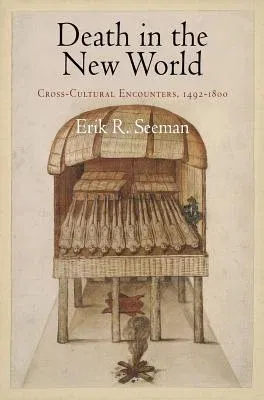Reminders of death were everywhere in the New World, from the epidemics
that devastated Indian populations and the mortality of slaves working
the Caribbean sugar cane fields to the unfamiliar diseases that
afflicted Europeans in the Chesapeake and West Indies. According to
historian Erik R. Seeman, when Indians, Africans, and Europeans
encountered one another, they could not ignore the similarities in their
approaches to death. All of these groups believed in an afterlife to
which the soul or spirit traveled after death. As a result all felt that
corpses--the earthly vessels for the soul or spirit--should be treated
with respect, and all mourned the dead with commemorative rituals.
Seeman argues that deathways facilitated communication among peoples
otherwise divided by language and custom. They observed, asked questions
about, and sometimes even participated in their counterparts' rituals.
At the same time, insofar as New World interactions were largely
exploitative, the communication facilitated by parallel deathways was
often used to influence or gain advantage over one's rivals. In
Virginia, for example, John Smith used his knowledge of Powhatan
deathways to impress the local Indians with his abilities as a healer as
part of his campaign to demonstrate the superiority of English culture.
Likewise, in the 1610-1614 war between Indians and English, the
Powhatans mutilated English corpses because they knew this act would
horrify their enemies.
Told in a series of engrossing narratives, Death in the New World is a
landmark study that offers a fresh perspective on the dynamics of
cross-cultural encounters and their larger ramifications in the Atlantic
world.

